

Albert M. Ottenheimer
Born: September 6, 1904
Died: January 25, 1980
in Tacoma, Washington, USA
Died: January 25, 1980
in Tacoma, Washington, USA
Albert M. Ottenheimer (September 6, 1904 – January 25, 1980) was an American stage actor who was blacklisted in the 1950s.
Albert was born in Tacoma, Washington. He attended the University of Washington, where he graduated magna cum laude, Phi Beta Kappa in 1927. While there he worked in stage productions and worked with the school publications.
In 1928 he co-founded the Seattle Repertory Playhouse with Florence and Burton James. Two plays produced there were written by Albert, L'Envoi and Funny Man. He also wrote books, on which two musicals were produced, Calico Cargo and San Juan Story. He took a leave of absence from the Playhouse to be a screenwriter at Metro-Goldwyn-Mayer.
He was a founding member of Seattle local of the American Federation of Radio Artists and chairman of its Negotiating Committee. Where he worked in the field of labor relations. His duties included: writing exhibits and briefs for The Brotherhood in Presidential Emergency Board cases.
From Wikipedia, the free encyclopedia.
Albert was born in Tacoma, Washington. He attended the University of Washington, where he graduated magna cum laude, Phi Beta Kappa in 1927. While there he worked in stage productions and worked with the school publications.
In 1928 he co-founded the Seattle Repertory Playhouse with Florence and Burton James. Two plays produced there were written by Albert, L'Envoi and Funny Man. He also wrote books, on which two musicals were produced, Calico Cargo and San Juan Story. He took a leave of absence from the Playhouse to be a screenwriter at Metro-Goldwyn-Mayer.
He was a founding member of Seattle local of the American Federation of Radio Artists and chairman of its Negotiating Committee. Where he worked in the field of labor relations. His duties included: writing exhibits and briefs for The Brotherhood in Presidential Emergency Board cases.
From Wikipedia, the free encyclopedia.
Movies for Albert M. Ottenheimer...
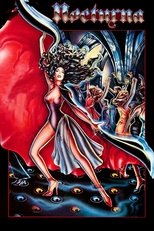
Title: Nocturna
Character: Dr. Bernstein
Released: June 1, 1979
Type: Movie
Hard times have fallen on the Transylvanian House of Dracula. To help pay the taxes, Castle Dracula has been converted into the Hotel Transylvania. Dracula himself is aging and toothless, being cared for by his granddaughter Nocturna. When Nocturna books a disco group to play The Claret Room and winds up falling in love with one of the backup guitarists, a mortal named Jimmy, she notices that she is able to see her reflection when she dances, so she decides to follow Jimmy to New York in search of mortality.


Title: Siege
Character: Mr. Lubin
Released: April 26, 1978
Type: Movie
A drama about a community of senior citizens who are terrorized by a ruthless neighborhood gang. After learning that the police are stymied because the victims are too scared to testify against the bullying leader, a semi-retired toolmaker decides to take a stand.

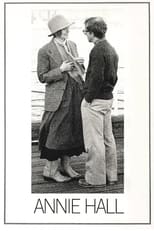
Title: Annie Hall
Character: Street Stranger
Released: April 19, 1977
Type: Movie
New York comedian Alvy Singer falls in love with the ditsy Annie Hall.


Title: The Front
Character: School Principal
Released: September 17, 1976
Type: Movie
A cashier poses as a writer for blacklisted talents to submit their work through, but the injustice around him pushes him to take a stand.


Title: How to Survive a Marriage
Character: Moe Bachman
Released: January 7, 1974
Type: TV
How to Survive a Marriage is an American soap opera which aired on the NBC television network from January 7, 1974 to April 17, 1975. The serial was created by Anne Howard Bailey, with much input from then-NBC Vice President Lin Bolen. The show's working title was From This Moment and was an in-house NBC production.

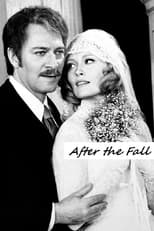
Title: After the Fall
Character: Chairman
Released: January 2, 1974
Type: Movie
Adaptation of Arthur Miller's semi-autobiographical play about Quentin, a Jewish intellectual from New York who must reexamine his life and his troubled relationship with Holga.

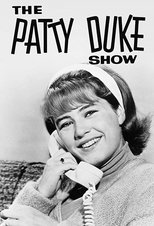
Title: The Patty Duke Show
Released: September 18, 1963
Type: TV
The Patty Duke Show is an American sitcom which ran on ABC from September 18, 1963 to April 27, 1966, with reruns airing through August 31, 1966. The show was created as a vehicle for rising star Patty Duke. A total of 104 episodes were produced, most written by Sidney Sheldon.

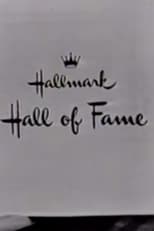
Title: Hallmark Hall of Fame
Released: December 24, 1951
Type: TV
Hallmark Hall of Fame is an anthology program on American television, sponsored by Hallmark Cards, a Kansas City based greeting card company. The longest-running primetime series in the history of television, it has a historically long run, beginning during 1951 and continuing into 2013. From 1954 onward, all of its productions have been shown in color, although color television video productions were extremely rare in 1954. Many television movies have been shown on the program since its debut, though the program began with live telecasts of dramas and then changed to videotaped productions before finally changing to filmed ones.
The series has received eighty Emmy Awards, twenty-four Christopher Awards, eleven Peabody Awards, nine Golden Globes, and four Humanitas Prizes. Once a common practice in American television, it is the last remaining television program such that the title includes the name of the sponsor. Unlike other long-running TV series still on the air, it differs in that it broadcasts only occasionally and not on a weekly broadcast programming schedule.
